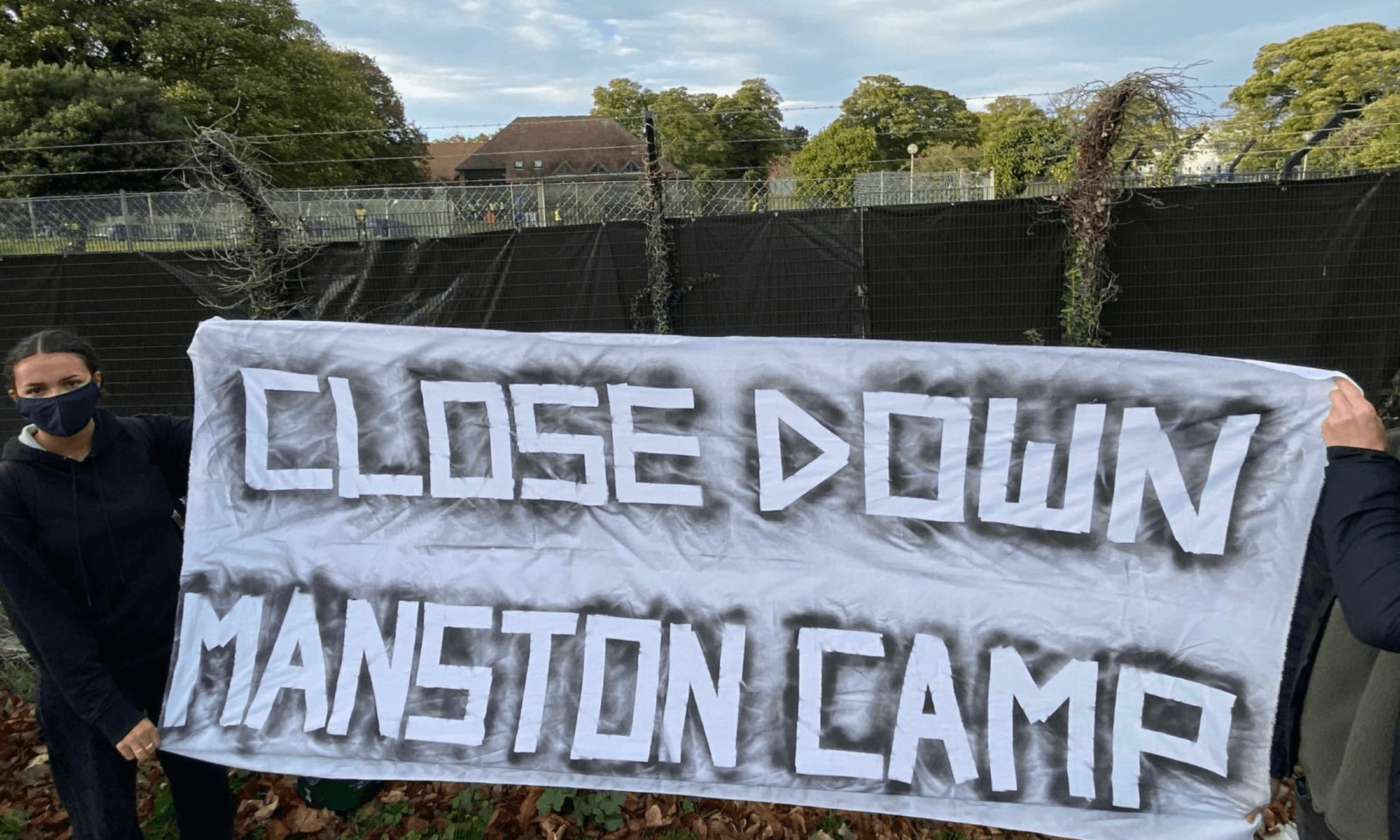
Creative Commons / Canva
Here’s how campaigners are beating the Home Office’s cruel immigration policies against the odds in 2020
The battle against the notorious government office may seem an uphill struggle but their incompetence means campaigners are slowly winning the war.
Bella Sankey
16 Nov 2020
Three weeks ago a family of five, including three small children, died in the Channel trying to reach the UK. The Home Secretary’s response to this avoidable tragedy was to double down on a system that saw this family twice being refused safe passage to the UK by train. In doing so she seeks to project strength and determination. However, her threats are increasingly empty; the laws and policies her department executes weak and acutely vulnerable to challenge. Power instead increasingly lies in the collaborative efforts of grassroots organisers, campaigners and public interest lawyers uniting to protect human rights against a department that has lost its way.
Despite Priti Patel’s aggressive rhetoric, there have been huge wins against the Home Office this year. Back in February, my organisation Detention Action, challenged the Jamaica 50 charter flight and ensured that 33 people – a majority of those due to be deported without access to justice – were removed from the flight. Families are now organising to demand fundamental changes to our inhumane deportation system.
We and others – in particular the dedicated lawyers at Bail for Immigration Detainees – have fought throughout the pandemic to get an unprecedented number of people released from immigration detention. Following campaigning and litigation, hundreds were released in a matter of weeks.
Public interest lawyers have successfully challenged the unlawful attempts to remove asylum seekers – with histories of torture, trafficking and sexual abuse – en masse to European countries, even grounding a plane to Spain in August. These human rights victories have shone a fresh light on this decades-old practice and prevented the abuse of power.
Last Friday, three trafficking survivors who recently arrived in the UK, legally challenged Priti Patel’s failure to identify them as survivors, in breach of her own policy. The High Court has now ordered the home secretary to follow her policy and properly screen all those arriving for trafficking indicators, throwing her plans to fast track the removal of those arriving in small boats into disarray.
Just last month, parliament, with cross-party support, came closer than ever before to ending indefinite immigration detention in law. A petition to prevent the detention and deportation of Osime Brown, a young autistic man who has lived in the UK since he was five, reached over 300,000 signatures and the Home Office was forced to retract a video containing an unconstitutional attack on “activist lawyers”.
In early November, the Home Secretary received a slap-down from the UN Secretary-General, Ban Ki-Moon, for her use of this phrase. The Home Office has also just lost the landmark Medical Justice case, putting an end to its policy of fast track forced removals. This policy affected 40, 000 people, all told they had only 72 hours to appeal life-and-death decisions to remove them from the UK.
“Following the Windrush scandal the Home Office’s laws, policies, culture and practices are seen by many more for what they are”
These huge wins – and the logistical obstacles created by Covid – have stopped Priti Patel detaining and deporting thousands of people, many of whom would have been removed unlawfully.
This is not to say that the Home Office has been chastened, made more reflective, or respectful of the rule of law. Quite the reverse. As someone who has shadowed home affairs policy over a 15-year career, I have never seen the department so politicised and defensive. The department has defended and celebrated the hostile environment despite overwhelming evidence that it fuels racism across society and their trailed Fair Borders Bill is shaping up to be an all-out assault on the Refugee Convention.
But what’s different, following the Windrush scandal, is that the Home Office’s laws, policies, culture and practices are seen by many more for what they are – in so many cases an affront to justice, equality and human dignity.
The woeful Windrush compensation scheme serves as a daily reminder of the institutional disregard the department has for Black lives. And the fact that they haven’t bothered to trace the thousands of non-Caribbean Windrush residents who may have been similarly made destitute, detained or deported, nor considered the injustices visited on Windrush descendants many, like Darrel and Darren Roberts, still fighting deportation cases, highlights the scale of the challenge.
None of this is normal in a confident and compassionate democracy. It shows a barbaric disregard for human beings at the highest levels of government. But it also shows insecurity and weakness.
Why? Because a government department that’s confident in its approach and vision, does not resort to such extreme policies and tactics.
The home secretary’s desperate political attacks on immigration lawyers were an attempt to distract from the chaos of her response to Channel crossings. That a domestic terrorism knife attack followed, against the law firm that has successfully challenged some of her department’s most wild and unlawful actions this year, is telling. Competent and successful home secretaries help eradicate terrorism, not inspire it.
Similarly, the Home Office has been engaged in a disinformation campaign regarding asylum law that would make Q-Anon blush; falsely claiming that people arriving by boat are “illegal” and pretending that the end of the Brexit transition period will make it easier to remove asylum seekers. In fact it’s perfectly legal to claim asylum in the UK arriving by whatever route or means possible and come the 1st January 2021 the Home Office will have no grounds to remove asylum seekers to Europe.
“It’s so important that all those who care about these issues keep the faith and keep on campaigning”
The department’s insecurity and weakness is revealed in its attempts to attack the people and the mechanisms that hold it to account – from “do-gooders” to the Human Rights Act and judicial review. And in its reluctance to engage in evidence-based policymaking as it regurgitates the same straw-man talking points in press releases and at the despatch box.
There is however much hope. Resistance to the Home Office’s industrial-scale dehumanisation of human beings has never been stronger. Community organising – from Windrush elders to teenage BLM activists – petition-writing, investigative journalism and litigation are all playing a vital role in holding the government to account.
Which is why it’s so important that – despite the Covid pressures we all feel – all those who care about these issues keep the faith and keep on campaigning. The Home Office can appear to be an all-powerful monolith but they lost the moral high ground several decades ago, and it shows.
As Marcus Rashford has ably demonstrated, power and strength reside in living by your values, being persistent and joining with others to protect our most vulnerable communities. Together we have the power and strength to hold Priti Patel to account. And we must continue to do so every single day.
Bella Sankey is director of Detention Action, a national charity that supports people detained under immigration powers. You can donate to Detention Action here.

Britain’s policing was built on racism. Abolition is unavoidable

How Pakistan’s Khwaja Sira and transgender communities are fearing and fighting for their futures

Their anti-rape performance went viral globally. Now what?






